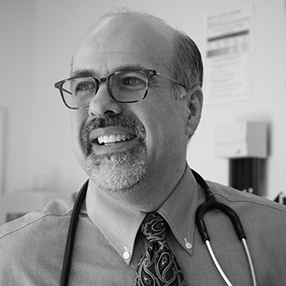California
I used to dream of living here. I hike
a trail I know that at the end opens
to glorious views of the city I did
live in once, when men my age kept dying
while I learned how to diagnose AIDS.
Some dreams don’t come true, and some dreams become
nightmares. Across a field that smells of sage,
a few horses loiter. I want to think
that they forgive me, since they’re noble creatures.
They stamp and snort, reminding me they know
nothing of forgiveness. I used to dream
that someday I’d escape to San Francisco,
when I was still in high school and I knew.
Tall and muscled, the horses are like the jocks
on the football team who beat me once, as if pain
teaches truth and they knew I had to learn.
I used to dream I was as white as them,
that I could slam my locker closed and not
think of jail. Some nightmares come true,
like when my uncle got arrested for
cocaine. My family never talked about it,
which made me realize they could also feel shame.
That’s when I started dreaming I could be
a doctor someday, that I could get away,
prescribe myself a new life. Right now, as
the city comes into view, I think of those
animals and hope they got what they deserved.
The city stretches out its arms, its two bridges
to Oakland, to Stockton, to San Rafael,
to Vallejo; places I could have been from
but wasn’t. It looks just as it did
all those years ago. Yet I know it’s changed
because so many of us died, like Rico,
who took me up here for the first time.
We kicked a soccer ball around and smoked
a joint. I think we talked about our dreams,
but who can remember dreams. I look out
and the sun like your hand on my face
is warm, and for a moment I think this is
glorious, this is what forgiveness feels like.
Copyright © 2020 by Rafael Campo. Originally published in Poem-a-Day on October 5, 2020, by the Academy of American Poets.
“In the midst of the COVID-19 pandemic, I’ve been thinking about how poetry can sustain us, much as it did during the height of the AIDS crisis—another pandemic that still rages in many parts of the world, and particularly in marginalized communities everywhere. We need poetry now as we did then to make sense of our experience of suffering, to name and to humanize the victims of these twin killers even as some seek to blame or stigmatize or erase them. I wrote this poem to come to terms with some of my own conflicted feelings of shame, complicity, and privilege as I care for people with COVID-19 among my many other patients who continue to live with HIV, and to remember those who did not survive, recognizing my paradoxical power and helplessness as I witness the disproportionate burden of these diseases on people of color.”
—Rafael Campo

